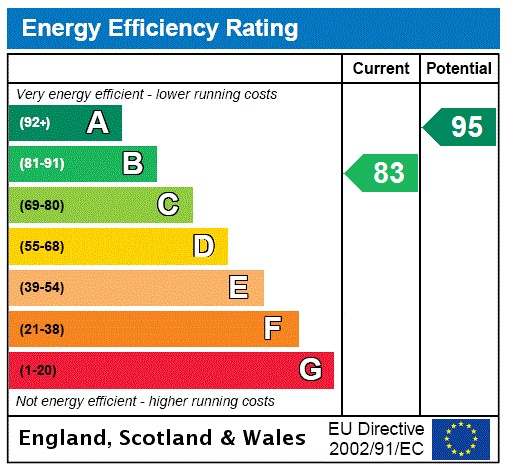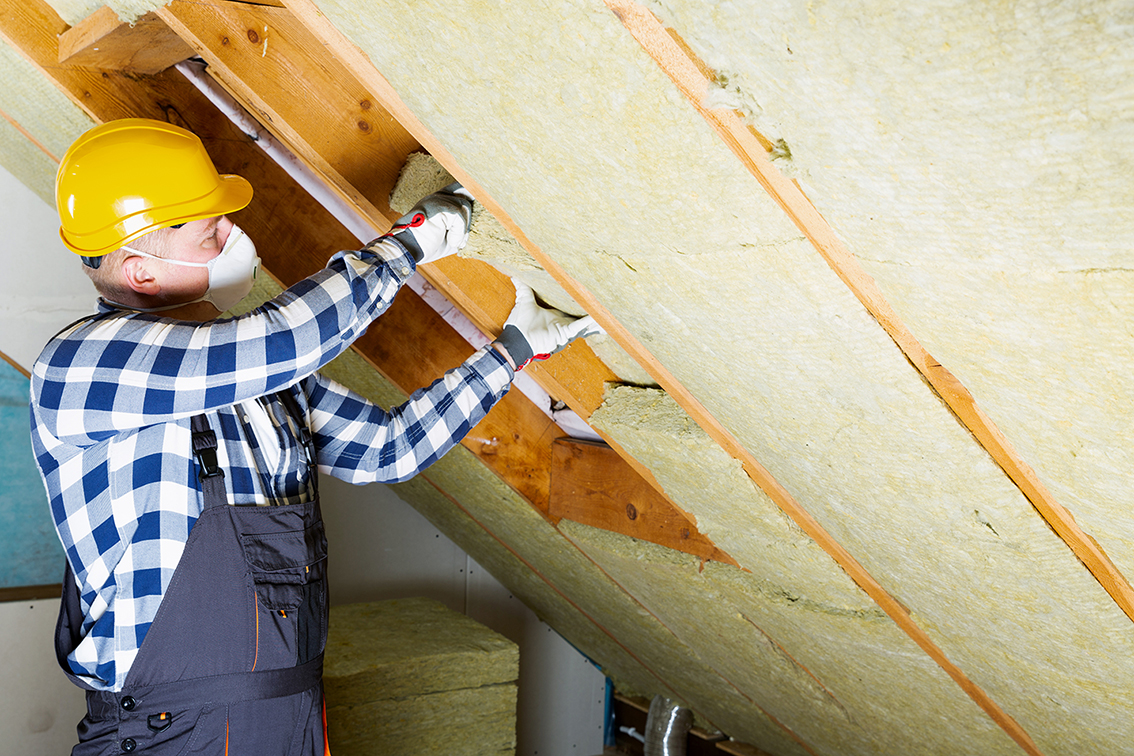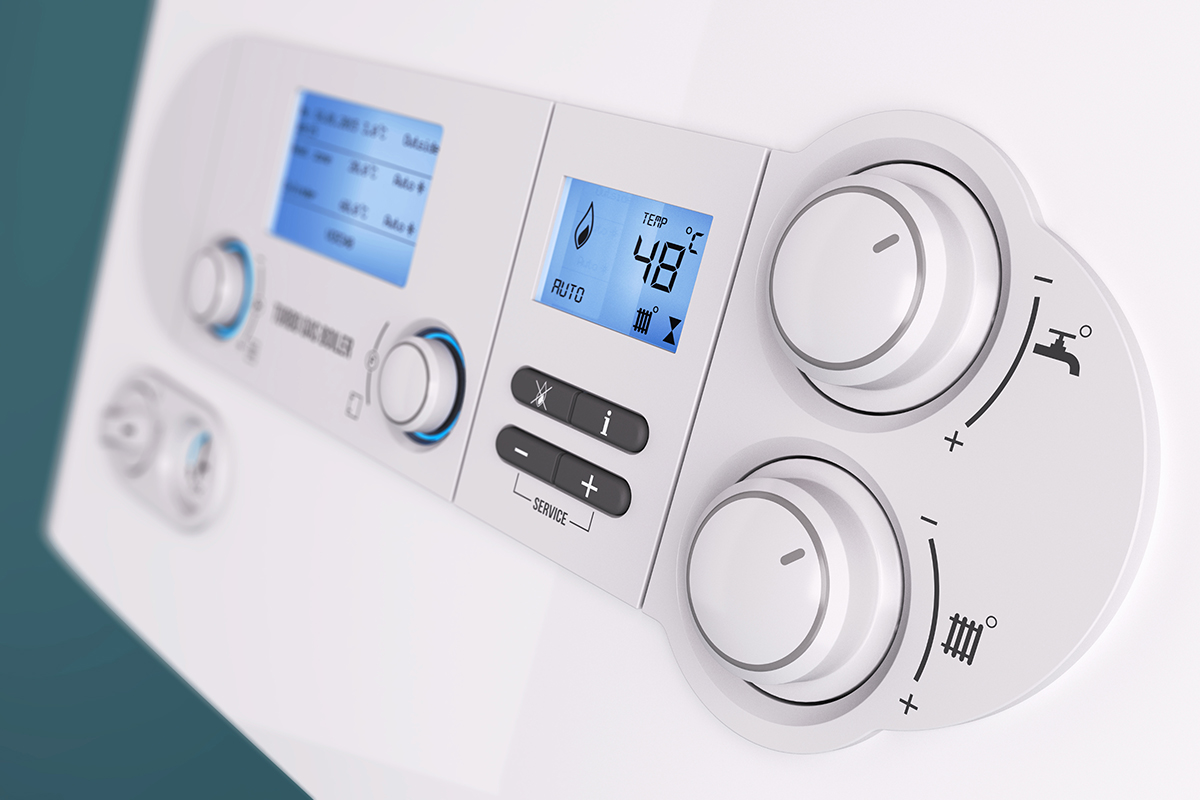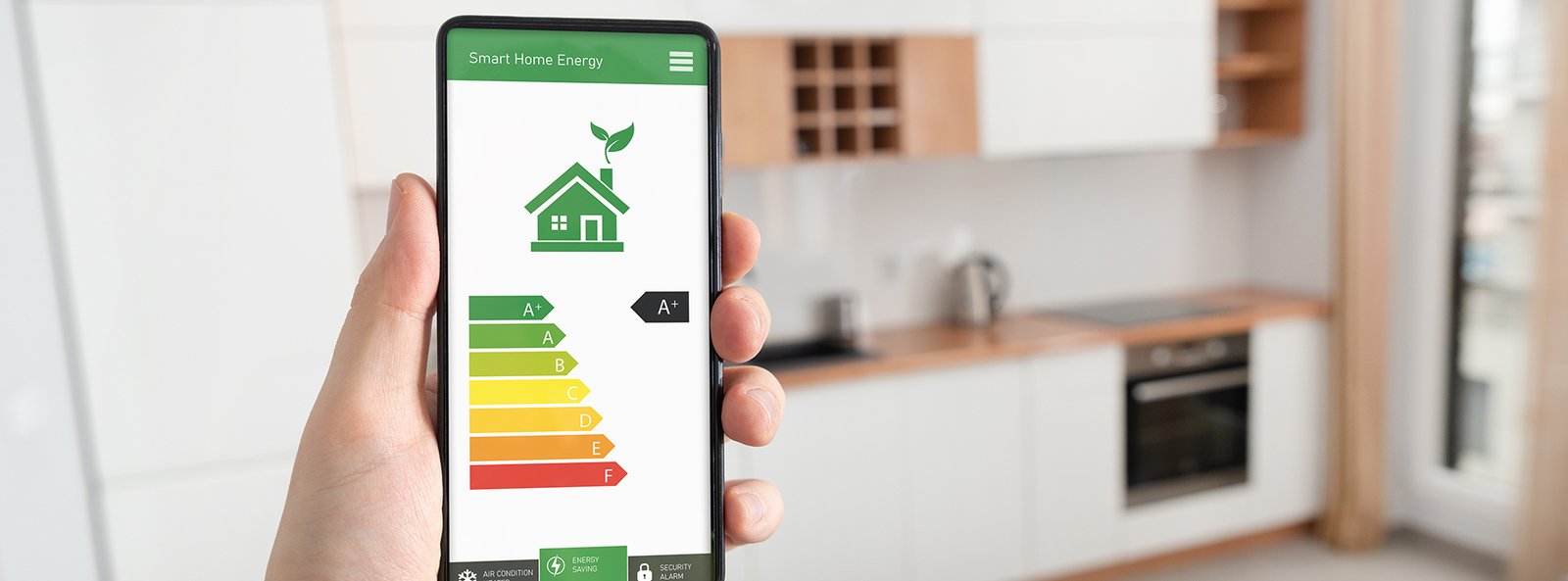As energy costs rise and the average homeowner (and prospective homeowner) becomes more environmentally aware, improving the energy efficiency of your home can not only save your money now, but also improve its market value should you think about selling.
What is an Energy Performance Certificate (EPC)?
An Energy Performance Certificate (EPC) shows how energy efficient a home is and is valid for 10 years. It's key to buying, selling or renting a property as it gives you an idea of how much your energy bills will cost and what the property’s carbon emissions will be.
What do the EPC rating bands mean?
Your EPC will have a chart with rating bands. The bands range from A to G, with A being the best possible rating your home can have, and G being the worst. In the chart, you can see the current rating and potential rating, if you were to carry out the recommended home improvements.

The numbers in each rating reflect the government's Standard Assessment Procedure (SAP) and go from 1 to 100 SAP points. These scores are divided into bands as follows:
- EPC rating A = 92-100 SAP points (most efficient)
- EPC rating B = 81-91 SAP points
- EPC rating C = 69-80 SAP points
- EPC rating D = 55-68 SAP points
- EPC rating E = 39-54 SAP points
- EPC rating F = 21-38 SAP points
- EPC rating G = 1-20 SAP points (least efficient)
How is an EPC calculated?
Your property’s EPC rating is based on:
- The amount of energy used per m²
- The level of carbon dioxide emissions (given in tonnes per year)
Is there a minimum EPC rating for rental properties?
If you’re letting out your property, you’ll also need to be aware that the current minimum energy efficiency standards (MEES) allowed on EPCs for rented properties is an E rating.
The Government is also proposing new EPC regulations. If the proposal goes ahead, rented properties will need to have a certification rating of C or above from 2025.
5 ways how to improve your EPC rating
Improving your home’s energy efficiency will increase its EPC rating. You’ll also reduce your energy bills and carbon footprint, make your home warmer and could also increase its value.
Here's 5 useful tips on what you can do to boost your home’s EPC rating:
1. Add more insulation to your home
Insulation is one of the most impactful changes you can make to your EPC and will likely cost less than alternative improvements. Typically, 25% of heat is lost through a property’s roof and 35% through its walls. The remaining 40% is lost through doors, windows and the floor.
 Roof
Roof
Increasing insulation in the loft to at least 270mm thick will have a significant impact on how much energy escapes through the roof. Going from having no insulation to 270mm can improve the rating by 10-15 points. Even a top-up of existing insulation can improve your rating by 2-5 points in many cases.
Walls
Installing Cavity Wall insulation could cost between £370 - £500, in a typical semi-detached property, and could have a big impact on your overall EPC rating. Further insulating a cavity can improve the rating by 5-10 points on average.
If your property has solid walls, the EPC rating is going to be much lower than an equivalent cavity wall property. You can insulate internally or externally with a solid wall, but both are expensive. It can, however, increase the rating of your property by 10-20 points.
Hot water cylinder
If you have a hot water cylinder, it’s worth adding insulation to the tank. This is cheap and easy to do and will increase your EPC rating by a few points.
2. Install double or triple-glazed windows
Single-glazed windows could be responsible for up to 40% of the heat loss in a property.
New double glazing could help to boost your property’s EPC score by 5-10 points, and the cost is likely to be in the region of £2,000-£5,000 for a typical terraced property.
Triple glazing is a more expensive improvement but is becoming more popular as it makes it much more difficult for heat to escape from your home. However, this is likely to only improve your EPC rating by a small amount.

3. Upgrade to a more efficient boiler
If you’ve got an old boiler with an appliance rating of ‘G’, replacing it with a new A-rated condensing boiler that includes a programmer and thermostat could have a huge impact on your EPC score – increasing it by as much as 40 points.
It’s likely to cost between £1,000 and £3,000, but this spend could easily be recovered over time, as it will make your home significantly more energy-efficient.

4. Time for renewable energy
Depending on the size of the system, installing solar electricity panels can boost your EPC rating, whilst also producing cheaper and greener energy for you to use. With larger 16-panel systems, you could add up to 10 points to your rating.
Solar thermal panels, although usually a bit cheaper to install, will only add a few points to the rating.
Wind turbines can also improve your EPC rating, but this is only going to make a difference for larger turbines in rural areas. Small urban turbines have little impact, both on the EPC rating and on your electricity consumption.

5. Switch to energy-efficient lighting
One easy way to improve energy efficiency is to replace halogen or incandescent light bulbs with light-emitting diodes (LEDs).
Although they cost a little more to buy, they can last for 20-30 years. Taking advantage of this cost-effective quick-win, especially if your EPC rating is on the margins, could give a boost of 1-2 points.
How can my property’s EPC rating affect its market value?
A study by Rightmove has revealed that sellers who've upgraded their property's EPC rating from a D, E or F up to a C rating, achieved up to 16% more on their sale price. The study analysed over 200,000 homes listed on Rightmove that had sold twice, with an improved EPC rating the second time.
We’ve seen similar situations. Last year, for example, the team in our Cheltenham office saw:
- 85% of properties with a high EPC rating and a modern boiler Sold (STC) within 3 weeks of marketing.
- Only 15% of properties that required a boiler upgrade in the coming years Sold (STC) within 3 weeks of marketing.
- Properties with a modern boiler and lower running costs achieved 100% (or more) of the asking price.
If you’re thinking of selling or renting out your property, it could be worth more than you think – especially if it’s energy-efficient.
Use our free tool to find out or book an in-person, no-obligation valuation with one of our experienced teams.





